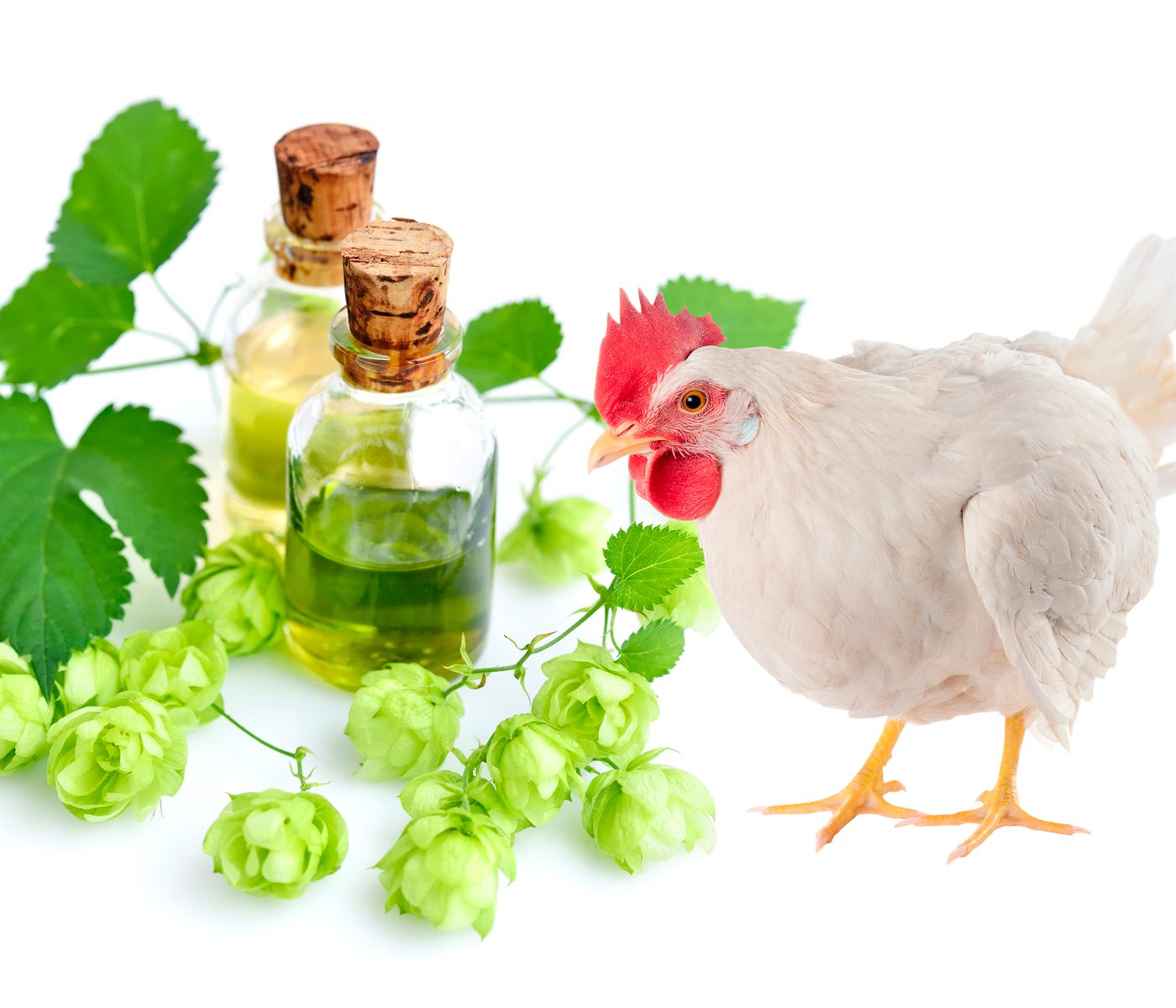 07 Aug 2024
07 Aug 2024
The poultry industry is continuously evolving, seeking innovative solutions to enhance productivity while maintaining sustainability. Among these solutions, phytobiotics—plant-derived products with bioactive properties— have gained significant attention. These natural additives offer a promising alternative to conventional growth promoters, aligning with the global push for more sustainable and eco-friendly agricultural practices.
Phytobiotics, also known as botanicals or phytogenics, include a wide range of plant-based compounds such as essential oils, herbs, spices, and extracts. These substances are rich in bioactive compounds like flavonoids, alkaloids, and terpenoids, which contribute to their potent biological activities. Historically, plants have been used for their medicinal properties, and modern science is now leveraging these traditional uses to enhance livestock production.
Growth Promotion and Feed Efficiency: Phytobiotics have been shown to improve growth rates and feed conversion ratios in poultry. Studies suggest that these plant-based additives enhance nutrient absorption and digestion, leading to better feed efficiency and increased weight gain (Windisch et al., 2008). For example, essential oils from oregano and thyme have demonstrated significant improvements in broiler performance by promoting gut health and nutrient assimilation.
Antimicrobial Properties: One of the most compelling advantages of phytobiotics is their antimicrobial activity. With the increasing concern over antibiotic resistance, phytobiotics offer a natural solution to mitigate pathogenic bacteria in poultry. Compounds like carvacrol, thymol, and eugenol possess strong antimicrobial effects against common pathogens such as Escherichia coli and Salmonella spp. (Burt, 2004). This not only enhances bird health but also ensures food safety.
Immune Modulation: Phytobiotics can boost the immune system of poultry, making them more resilient to diseases. Bioactive compounds in plants stimulate the production of antibodies and enhance the activity of immune cells. For instance, garlic and ginger extracts have been shown to enhance the immune response in broilers, providing a natural defense against infections (Greathead, 2003).
Antioxidant Effects: Oxidative stress is a significant challenge in intensive poultry production, affecting bird health and productivity. Phytobiotics are rich in antioxidants, which help mitigate oxidative damage by neutralizing free radicals. This not only improves overall health but also enhances meat quality by reducing lipid oxidation, leading to longer shelf life and better consumer acceptance (Surai, 2014).
Phytobiotics contribute to sustainability in several ways. Firstly, they reduce the reliance on synthetic additives and antibiotics, which can have adverse environmental impacts. By promoting better health and productivity naturally, phytobiotics decrease the need for medical interventions and enhance the overall sustainability of poultry farming.
Moreover, many phytobiotic sources are renewable and can be sustainably harvested, aligning with the principles of environmentally friendly agriculture. The use of these natural products helps in maintaining biodiversity and reducing the carbon footprint of poultry production.
Despite their benefits, the adoption of phytobiotics in the poultry industry faces certain challenges. The variability in plant composition, potential interactions with other feed components, and the need for standardized dosages are some of the hurdles that need to be addressed. Further research is essential to optimize formulations and ensure consistent efficacy.
Nevertheless, the future of phytobiotics looks promising. Advances in biotechnology and phytochemistry are paving the way for more effective and targeted applications. With growing consumer demand for natural and sustainable products, phytobiotics are set to play a pivotal role in the future of poultry production.
Phytobiotics represent a natural and innovative approach to enhancing poultry production sustainably. By improving growth performance, boosting immunity, and providing antimicrobial and antioxidant benefits, these plant-based additives offer a holistic solution to some of the industry’s most pressing challenges. As research continues to unlock their potential, phytobiotics are poised to become a cornerstone of sustainable poultry farming.
Source: aviNews.com
You might also enjoy reading some of our selected articles on phytobiotics:
Subscribe now to the technical magazine of animal nutrition
AUTHORS

Nutritional Interventions to Improve Fertility in Male Broiler Breeders
Edgar Oviedo
The Use of Organic Acids in Poultry: A Natural Path to Health and Productivity
M. Naeem
Synergistic Benefits of Prebiotics and Probiotics in Poultry, Swine, and Cattle
Gustavo Adolfo Quintana-Ospina
Hybrid Rye Potential in Laying Hen Feed Rations
Gwendolyn Jones
A day in the life of phosphorus in pigs: Part I
Rafael Duran Giménez-Rico
Use of enzymes in diets for ruminants
Braulio de la Calle Campos
Minerals and Hoof Health in the Pregnant Sow
Juan Gabriel Espino
Impact of Oxidized Fats on Swine Reproduction and Offspring
Maria Alejandra Perez Alvarado